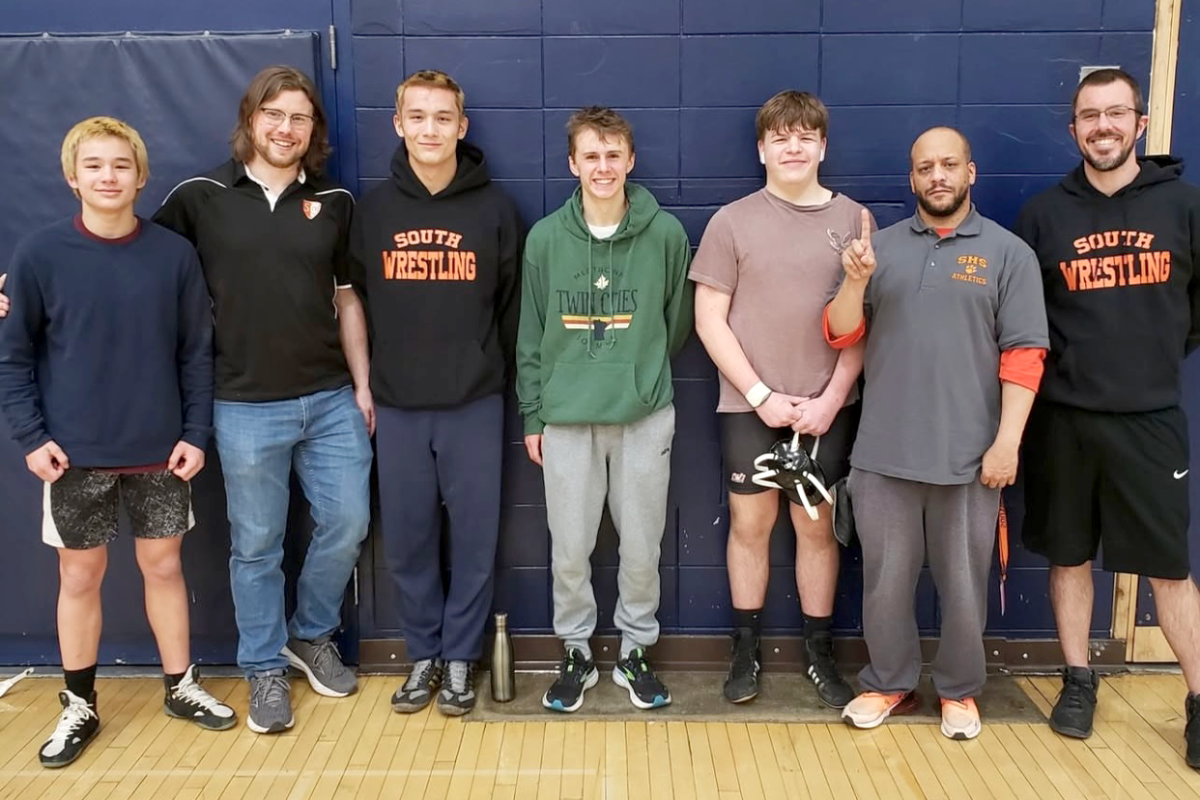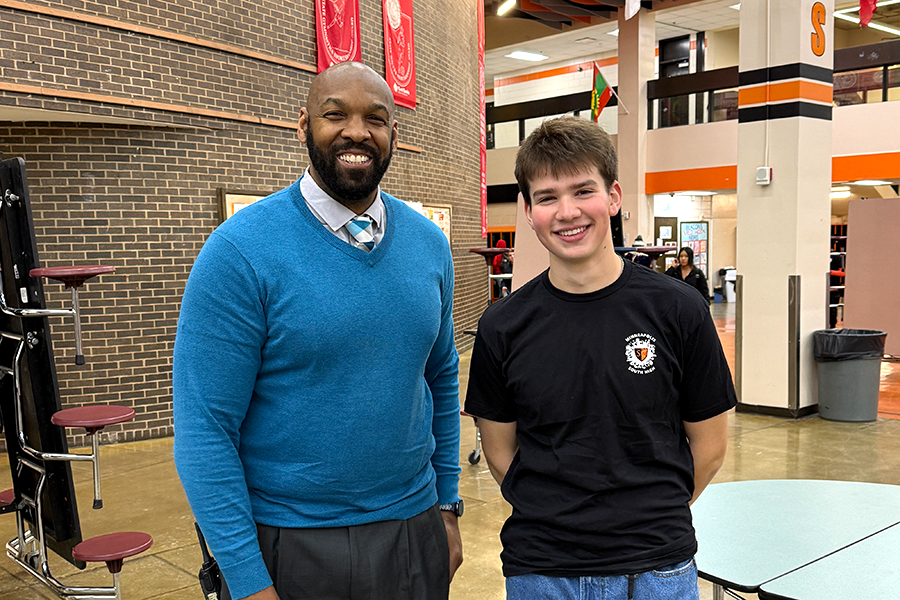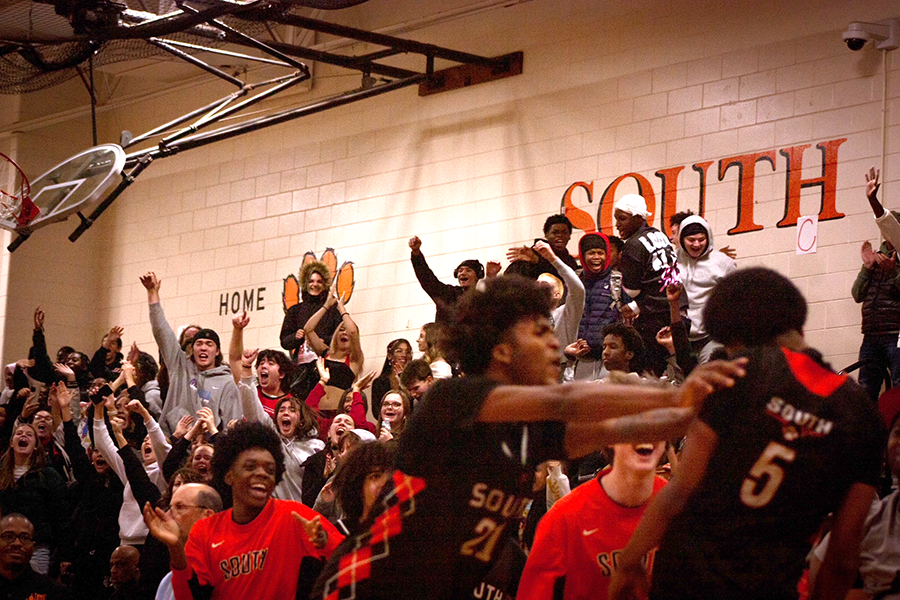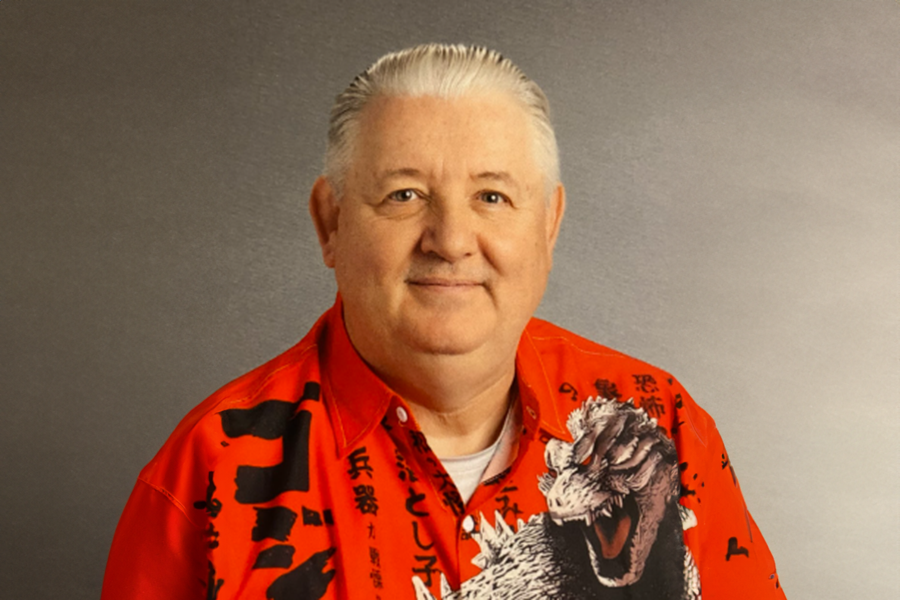If you have ever been to a high school sporting event, a soccer game, a cross country meet, or a tennis match, you know that the sidelines are sometimes even more interesting than the game. There are aggressive parents, appreciative parents, ones with signs, and ones with whistles.
It’s an interesting conundrum being a teenager and an athlete. What degree of control should your parents hold over your athletics? Are they merely supportive figures, or are they there to push and improve you?
Freshman Anna Kleven played soccer and participated in Nordic skiing before she came to South. In the fall, she ran her first season of cross country. “I am nothing without sports,” she said. But her parents, she explained, have never pressured her into sports, despite that her father is very athletic. “My dad encourages me in the summer to do some running… but I don’t have to.” Kleven appreciates her parents’ support. “It makes me feel like I can do whatever I want.”
Not every parent understands that their role is not to coach from the sidelines. “I think that’s obnoxious,” said English teacher Tanya Hodge about parents who play the role of a coach. “I wouldn’t want parents to come into my class…I’m going to be a spectator and a supporter of my child and the coaches.”
Hodge became a spectator of her son, a freshman at Washburn, this year after she pushed him to join the South, Roosevelt, and Washburn combined swim team. “I think he felt pressured to be on the swim team but in terms of competition…that was not part of it,” said Hodge.
“I want him to be in one extracurricular activity per season,” explained Hodge. She prefers swimming because it is a lifelong sport that doesn’t tend to injure athletes, and liked the idea of a combined team. Many of the leaders on the swim team are South students she has taught. Hodge saw swimming as “good for his mind and his body as a fifteen year old in his development.”
Her son’s decision to swim was “mostly me saying ‘you’re going to do this,’” admitted Hodge. But he ended up enjoying it and making a lot of friends. “It was a tension between us, but his attitude improved and I backed off.”
Sophomore Mary Kampa and her sister Emily Kampa, a senior, have a different experience than Kleven and Hodge’s son. Both sisters compete in gymnastics, Mary Kampa plays volleyball, and Emily Kampa plays soccer and ultimate frisbee. The sisters are pressured by their mother to train and achieve. “There’s more pressure to succeed and be the best in the sport,” explained Emily Kampa. But sometimes both Kampas notice that pressure from their mother gives the wrong attitude.
“If I don’t do well, it’s like [she’s wondering] ‘why not?’ My mom’s gonna be pissed,” Mary Kampa said. The extra pressure from their mother is not always helpful. “Sometimes I want to take it at my own pace,” Mary Kampa continued.
“Our goals are not always the same as her goals,” said Emily Kampa. The Kampas explained that their mother had a turbulent high school gymnastics career. She was pressured out of competing in the State meet. Their mother wants them to succeed at the highest level, but sometimes improvement overshadows competition for the daughters.
“[Parents] are there to support you,” said Mary Kampa. “Kids that have pressure with parents, sit them down.”
“Tell them why you’re stressed,” said Emily Kampa. With the help of their father, the Kampas talked to their mother about her involvement in their sports. They explained that she was willing to listen because she had good intentions.
Sitting down with their mother allowed the Kampas to explain to her how she could support them in a way that helps them succeed. It helped them realize that their mom meant to be supportive of their goals and their competition.
Junior Srija Chatterjea-Sen grew up dancing with the complete support of her mother. From the time she was three until the end of eighth grade, Chatterjea-Sen danced with her mother’s Indian Contemporary dance company. “She gives me the best training and the hardest training,” said Chatterjea-Sen.
Chatterjea-Sen switched to Western dance styles like ballet and jazz at the end of eighth grade. “[My mother] kind of just dealt with it. She supported me in it,” said Chatterjea-Sen. “She held the belief that she could give me the best training, she’s not wrong.” Chatterjea-Sen knows that she can go to her mother for guidance in dance.
Not dancing for her mother has had positive effects on their relationship. “We fight less,” said Chatterjea-Sen. “She pushes me really hard but only for what I want… it gives me the freedom to do what I want to do.”
Chatterjea-Sen is grateful for the change. “I feel like [if I hadn’t left her company], I wouldn’t be able to separate my identity as a dancer with hers.”






